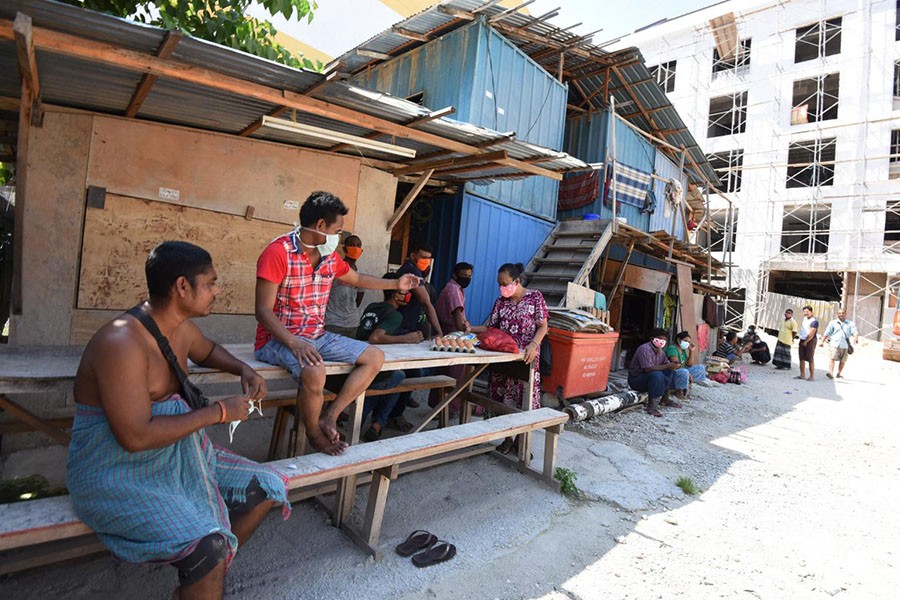Many jobless Bangladeshi workers in Malaysia are now facing food crisis, as they have no funds to meet their daily expenses, workers and migration experts said.
Their hardship has turned so acute that some charities have come forward to provide them with foods and other essentials. But all the workers are not getting such supports, it was learnt.
Ahmadul Kabir, associate member of the Malaysia Bangladesh Forum Association (MBFA), said workers were facing food crisis, because they had no income over months because of the lockdown, imposed to curb Covid-19 infection.
The MBFA is a platform of Bangladeshi expatriates in Malaysia, which created a fund to meet the food needs of helpless expatriate workers. The association has taken an initiative to provide food assistance to such Bangladeshi workers.
"So far, we have provided foods to more than 1,200 workers," he mentioned.
According to him, following the Coronavirus outbreak, many Bangladeshi workers have become unemployed. Of them, a large number do not have enough food at home.
Workers and migration experts said a significant number of Bangladeshi workers lost jobs since the Covid-19 virus pandemic broke out in the Southeast Asian country in early 2020. Now Malaysia is battling with the third wave of outbreak.
Some workers had managed jobs when the lockdown was withdrawn in this January. But the Malaysian government imposed lockdown for the third time in June.
Md Jashimuddin, a Bangladeshi expatriate who worked at a used car shop as cleaner, remained jobless since this June.
He used to earn MYR 1,600 or about Tk 32,000 monthly. His employer closed business during the lockdown.
"I have to search for a new job when the lockdown would be fully eased," he added.
Like him, some of his friends also remained out of work for the last three months, said Jashimuddin, adding that employers also cut wages of many workers.
Talking to the FE, Abu Hayat, a Malaysia-based freelance researcher, said Bangladeshis who were working in construction sector faced problems, as many companies shut their projects.
"Workers from car workshops, mini super-shops, wholesale markets, and small farms also lost employment."
The workers, who were hired through outsourcing companies, faced more job cuts. Both the documented and undocumented workers from different sectors remained out of work during the pandemic period, he added.
About 700,000 Bangladeshis are staying in the Southeast Asian country. Of them, a large number of workers are engaged in construction sector and other small enterprises.
Migration experts and rights activists urged the authorities concerned, including the Bangladesh High Commission in Kuala Lumpur, to ensure providing necessary supports to the vulnerable migrant workers.
Malaysia is a vital market that started recruiting Bangladeshi workers in 1978. More than 1.0 million workers went to the labour receiving country with the Bureau of Manpower Employment and Training (BMET) clearance.
Meanwhile, 15,72,765 cases of Coronavirus have been reported in Malaysia until August 23, while 14,342 persons died, according to the Worldometers website.


